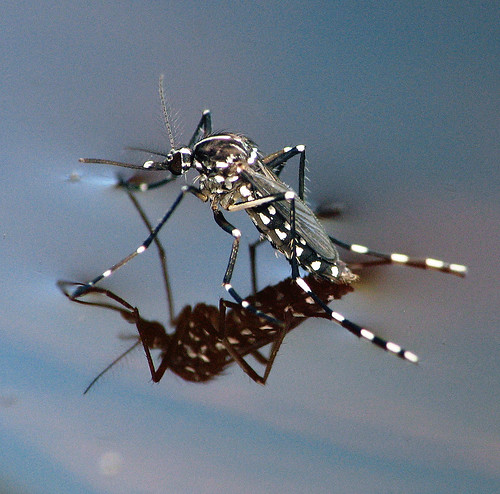 Google is facing more potential legal problems after Australia’s attorney general said the company had illegally collected personal information over insecure wireless networks while assembling data and pictures for Google Street View. Australia is just the latest country to take issue with the Internet giant. Germany, France and Spain already have reported concerns.
Google is facing more potential legal problems after Australia’s attorney general said the company had illegally collected personal information over insecure wireless networks while assembling data and pictures for Google Street View. Australia is just the latest country to take issue with the Internet giant. Germany, France and Spain already have reported concerns.
Google has asserted that the data collected from personal wi-fi networks was accidental, and that it will cooperate with authorities. The Associated Presa reported that investigations in Australia and Germany have already commenced.
The Australian government did little to downplay the supposed error. Google, the government said, had committed “probably the single biggest breach in the history of privacy.”
According to the the BBC’s Nick Bryant, Google has suggested that it believes the Australian government is pursuing a “vendetta” against the company.
On Monday, Connecticut Attorney General Richard Blumenthal said at a press conference he will be investigating whether Google wrongly obtained any information while collecting data for Street View in Connecticut.
Complaints over Street View are nothing new for Google. The company faced particularly harsh privacy concerns in the UK in 2009.
–Seth Walder
The South African High Court has ordered the government to release a report conducted by South African observers on the 2002 Zimbabwe election to Johannesburg’s Mail & Guardian newspaper after years of keeping review secret. Current South African President Jacob Zuma has until Friday to turn the report over to the newspaper.
The document is controversial, since it’s believed to contain evidence confirming massive irregularities in what many believed to be a dishonest Zimbabwean election, including violence and pressure orchestrated by Zimbabwe’s President Robert Mugabe. However, the South African government has insisted officially that the elections had been conducted properly and fairly.
The Mail & Guardian has been attempting to publish details from the report since 2008. Because the government denied the requests, the newspaper turned to the judicial system. Judge Stanley Sapire of the North Gauteng High Court ruled in favor of the newspaper.
The account was created in 2002 when Judge Sisi Khampepe and Deputy Chief Justice Dikgang Moseneke were asked by South Africa’s president at the time, Thabo Mbeki, to investigate the state of the election in Zimbabwe.
According to AllAfrica.com, “Mail & Guardian editor Nic Dawes previously told Business Day he suspected the report would contain information that would contest the view that the disputed election was free and fair.”
The South African government said the report was “supplied in confidence by or on behalf of another state, for the purpose of assessing or formulating a policy,” and therefore was confidential. Zuma’s government still has the ability to appeal the decision, though there has been no indication that it will take pursue that option.
–Seth Walder
 The number of cases of dengue fever in Brazil has grown this year at an alarming rate according to Jornal da Tarde. So far in 2010, there have been 22,346 reported cases of dengue fever in the nine cities examined by the study, up from just 438 during the same time period in 2009. Compared with just one in the first four months of last year, there have been 51 deaths in 2010 from the disease.
The number of cases of dengue fever in Brazil has grown this year at an alarming rate according to Jornal da Tarde. So far in 2010, there have been 22,346 reported cases of dengue fever in the nine cities examined by the study, up from just 438 during the same time period in 2009. Compared with just one in the first four months of last year, there have been 51 deaths in 2010 from the disease.
According to the Municipal Department of Health, the numbers of infected Aedes aegypti, the most common type of mosquito to carry the disease, has increased by 5,800 percent. Atarde Online reported the epidemic is the worst in seven years.
“In practically all the provinces the virus is going around,” Health Ministry Disease Monitoring Service specialist Dr. Agueda Aguero said. The disease has crossed the Brazilian border and entered Paraguay as well. It is believed that higher than average temperatures and precipitation contributed to the mosquitos’ proliferation, and therefore a favorable environment for the disease.
–Seth Walder